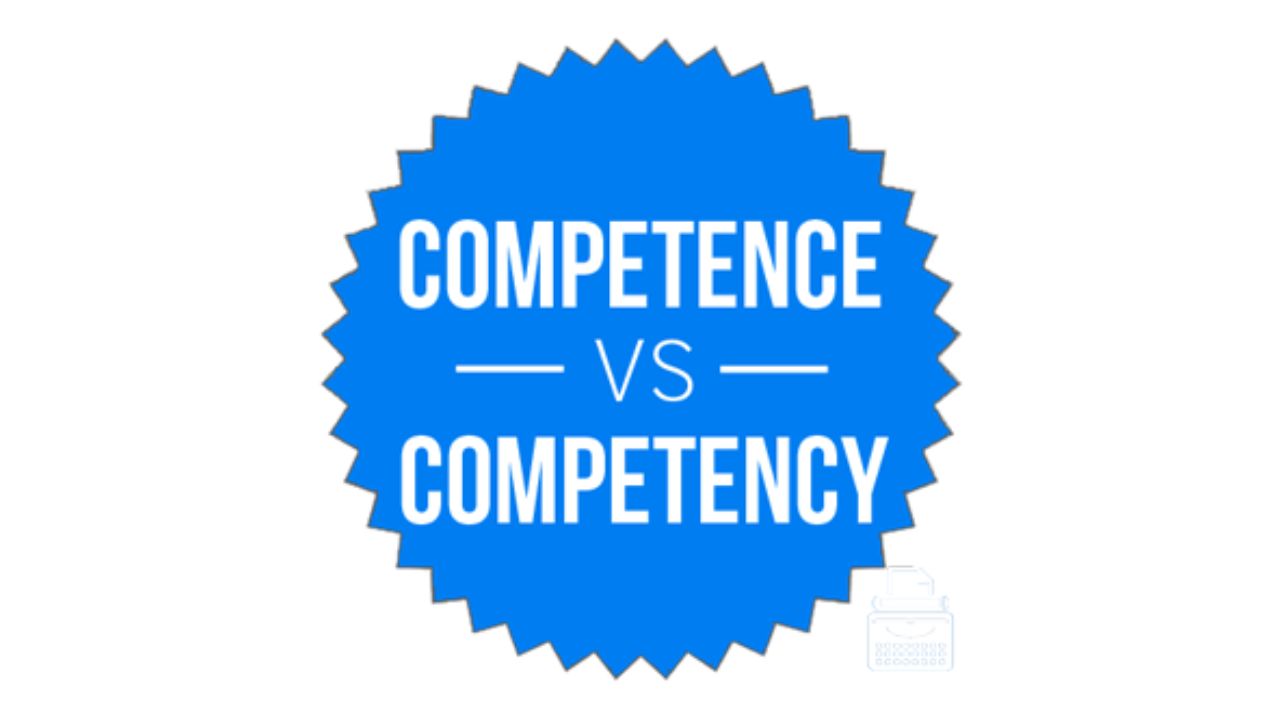Difference Between Competence and Competency: Competence is the ability to do something well. For example, you might be competent at typing fast on a keyboard or cooking a mean steak. Competency is typically viewed as a skill that someone has acquired through experience and hard work. On the other hand, competence can also be defined as having the required knowledge and skills to do a job, but not necessarily being good at it. For example, you might be competent at using Photoshop, but not necessarily good at creating beautiful images.
Competence
Competence is the level of mastery or understanding that a person has in a particular field. A person with competence in a field can do the job well and meet the expectations of their employers or clients. Competency is often seen as an individual trait, while competency levels can vary depending on the context or situation.
Competency levels are often determined by the task at hand and how familiar a person is with the subject matter. For example, a doctor who is competent in treating heart surgery would be more confident performing the procedure than a doctor who is not competent in this area.
There are three important factors to consider when assessing someone’s competence: task, context, and setting. Task refers to what the person is doing and what skills are needed to complete it. Context refers to where and when the task is taking place. Setting refers to how formal or informal the setting is.
For example, competence in accounting includes knowing how to account for revenue and expenses, as well as understanding financial statements and ratios. This knowledge would be different if the task was auditing financial statements instead of preparing them, or if it was performed in a formal setting versus an informal one.
Competency
When employees are labeled as competent, they know their job and can carry out the task with minimal supervision. This level of skill is typically required for entry-level positions. Employees who have been labeled as competent typically have a good work ethic, are detail-oriented, and take pride in their work. Competency typically leads to promotion.
When employees are labeled as competent, they are seen as having achieved a basic level of skill. This level of skill is typically required for mid-level positions or higher. Employees who have been labeled as competent typically posses good work ethic, are detail-oriented, and take pride in their work. However, because this level of skill is not always required for every position, some employees may be less likely to be promoted due to it. Competency typically leads to increased productivity and satisfaction within the workplace.
Why do we need competence?
In the 21st century, we are constantly being told that we need to be competent in order to compete. Competence is seen as the key to success. But is that really true?
In this blog post, I will explore the difference between competence and competence. I will argue that competence is not the key to success, and that we need more than just competence in order to achieve our goals.
When is a person competent to do a task?
There is a big difference between competence and competency. Competence means having the knowledge, skills and abilities to do something. Competency means being able to do something in the right way, with proper attention to detail, under pressure and without errors. Many times, competence is judged on an individual’s past experience, while competency is judged based on an individual’s current skill level.
For example, if you are a carpenter and have been building houses for many years, you are likely very competent at carpentry. However, if you are a carpenter who has never built a house before, but you have studied the principles of carpentry and can follow directions perfectly, you would be considered competent at carpentry. In this scenario, your current skill level would be more important than your past experience when it comes to determining your competency as a carpenter.
The opposite is also true: if you are a carpenter who has never built a house before but you can follow directions perfectly and build a perfect house every time, even without studying the principles of carpentry, you would be considered incompetent at carpentry. In this scenario, your past experience would be more important than
What is the difference between competence and Competency?
The two words share a common etymology. They both come from the French word ‘competence’, which means a skill, talent, or capability. That in turn comes from the Latin word ‘competentia’, which meant an agreement, a conjunction, and possibly expertise. ‘Competence’ and ‘competency’ seem to have split from each other sometime in Middle English, where they originally had different, distinct meanings. It’s possible that they were formed due to different spellings of the same word, which took on different meanings and became separate words. Today, while they do have different technical meanings, their common use is fairly similar.
Difference Between Bytecode and Binary Code
How do you develop competence?
Developing competence is a lifelong journey. You never stop learning and growing, no matter how competent you think you are. You can become more competent in any area of your life by building on your current skills and knowledge, and by learning new things. Here are four ways to develop competence:
1. Take advantage of opportunities to learn. When you have an opportunity to learn something new, take it! There’s no better way to grow than by expanding your horizons. Whether you attend classes, read books, watch videos, or participate in online courses, the more opportunities you have to learn new things, the better.
2. Practice what you know. As you continue learning new things, practice what you know! Use your current skills and knowledge in new ways to improve your productivity or effectiveness. For example, if you’re a graphic designer, try using Photoshop to create a logo for your company. Or if you’re a marketing manager, give presentations using PowerPoint instead of Powerpoint slides that you created yourself.
3. Ask questions and seek feedback. When you’re uncertain about something, ask questions! Not only will this help clarify the situation
What are the benefits of having competence?
There are many benefits to having competence, which include:
– Increased job satisfaction and employee retention rates
– Lower staff turnover rates
– Reduced training costs
– Improved customer service
– Increased competitiveness



